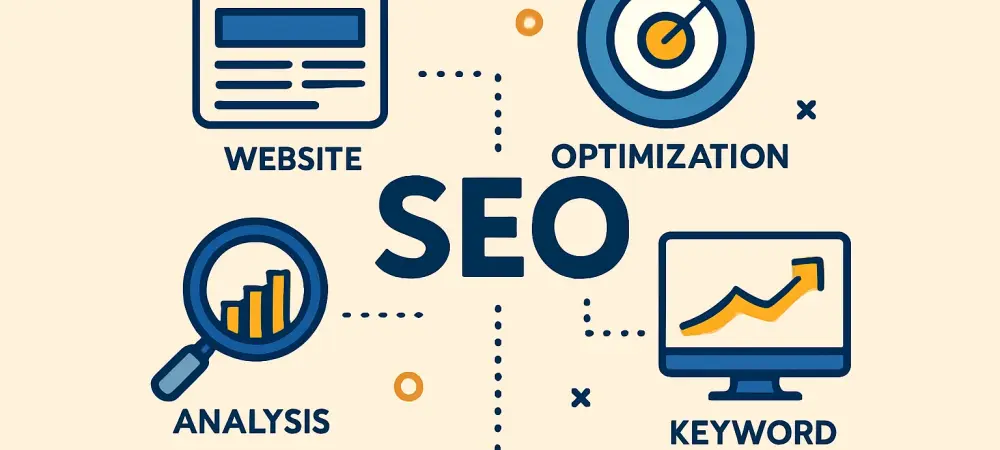As digital marketing efforts become more targeted, local businesses increasingly rely on advanced tools to capture local audiences effectively. The significant shift in local SEO strategies is evident with the emergence of comprehensive automation platforms tailored to boost efficiency. A notable player, LocalRank.so, which has recently surpassed 2 million citations across its client base, is reshaping how agencies manage local SEO by offering automated solutions. This review delves into the technology’s capabilities, including its core features, real-world applications, and the impact on current digital marketing strategies.
Insights into Local SEO Automation Technology
Local SEO automation is an innovative solution that automates many of the manual processes traditionally associated with local search optimization. The technology encompasses several critical components, including citation management, AI-powered audits, and seamless integration with other business tools. Over recent years, local SEO automation has gained prominence as businesses seek efficient ways to enhance their local visibility without significantly increasing operational overhead. The swift adoption of such technology by local businesses and agencies highlights its vital role in the digital marketing landscape. Platforms like LocalRank.so offer solutions to many challenges faced by marketers, ensuring campaigns are not only efficient but also scalable. With the integration of automation in local SEO, businesses are positioned to better engage with their target audience, driving both foot traffic and online visibility.
Essential Features in Local SEO Automation
Streamlined Citation Management
At the forefront of local SEO automation is citation management, allowing agencies to automate the process through platforms such as LocalRank.so. The platform provides bulk citation services, ensuring consistent and accurate information across hundreds of directories. This component is vital in boosting local search rankings and maintaining a solid online presence, proving its worth in competitive markets.
The ability to manage citations at scale without manual intervention was revolutionary for local businesses managing multi-location brands. By automating this process, businesses ensure accuracy and consistency, which are critical for local search optimization.
AI-Driven Audits and Reporting
AI-powered audits represent a breakthrough feature in local SEO automation, offering a fast and in-depth analysis of digital presence. These audits identify inconsistencies and errors that may hinder local search performance, empowering businesses to make data-driven decisions. The reporting aspect complements this by providing insightful analytics tailored for clear and actionable takeaways. In real-world scenarios, this capability allows agencies to report to clients effectively, using white-labeled solutions for seamless integration. These capabilities facilitate transparent communications with stakeholders, thereby strengthening client relationships and trust.
Seamless CRM and GMB Integration
Integration with Customer Relationship Management (CRM) systems and Google My Business (GMB) tools extends the functionality of local SEO automation platforms. A cohesive workflow emerges, where data is effortlessly synchronized, streamlining operations for local businesses. This ensures that local listings are updated in real-time, enhancing the accuracy of information presented to potential customers. As businesses increasingly operate on integrated ecosystems, such integration capabilities are not just beneficial but necessary. This feature’s value is in creating unified and streamlined operations, contributing to productivity and service quality improvements.
Progress in Local SEO Automation
The landscape of local SEO automation is constantly evolving, with several advancements redefining its capabilities. Noteworthy innovations include enhanced AI algorithms, which provide deeper data insights, and improved automation features that cater to ever-changing consumer search behavior. The integration of location tracking capabilities and expanded global listing coverage represents groundbreaking progress.
Consumer expectations for precise and relevant information are pressing businesses to adopt these innovations rapidly. This urgency drives technological advancements, whereby platforms continuously adapt to better serve their users and enhance performance outcomes.
Real-World Application and Implementation
Across industries, local SEO automation technology is playing a transformative role. The hospitality, retail, and healthcare sectors showcase the widespread application of these efficient solutions. The technology directly impacts the ability to attract local customers by offering tailored approaches for different industry needs. For small and medium-sized businesses (SMBs) and franchises, automation technology acts as a catalyst for scaling operations without proportionally increasing resources. Notable implementations include seamless management of multiple locations and providing unified customer experiences, which would be cumbersome to achieve manually.
Challenges in Adopting Local SEO Automation
Despite the favorable aspects, local SEO automation faces challenges ranging from technical barriers, such as data accuracy, to regulatory standards that govern digital marketing activities. Another significant hurdle includes market saturation, which creates fierce competition among solution providers, demanding constant innovation.
Efforts are underway to address these challenges, with continuous development focused on improving compatibility and ensuring compliance with digital marketing regulations. By anticipating changes in market dynamics, developers aim to refine their offerings further, providing cutting-edge solutions for users.
Outlook on the Future of Local SEO Automation
The trajectory for local SEO automation holds promising prospects, with potential breakthroughs poised to transform local digital marketing even further. Innovations in machine learning and data analytics are expected to enhance precision and automation capabilities. These developments will, in turn, impact how businesses engage with customers locally.
With the digital marketing landscape becoming more competitive, local SEO automation will play a more critical role in crafting effective local strategies. Future developments will likely focus on enhancing personalization and utilizing predictive analytics to anticipate consumer demands, ultimately shaping the next phase of local marketing.
Concluding Thoughts
Over the reviewed period, local SEO automation platforms like LocalRank.so have proven significant in transforming digital marketing strategies for local businesses and agencies. The technology’s ability to streamline processes, manage citations efficiently, and enhance reporting has offered substantial benefits. With sustained advancements and ongoing improvements addressing current challenges, local SEO automation is expected to continue shaping the industry’s future. As new capabilities emerge, businesses can look forward to more sophisticated tools to aid engagement with their audience and maintain competitive advantages.

